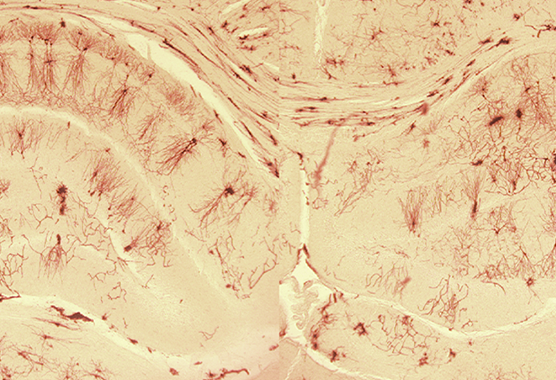Gene Gurkoff, Ph.D., uses rodent models to investigate changes in neural connectivity and activity using EEG and depth electrode recordings following traumatic brain injury or in subjects with epilepsy. He is also investigating whether targeted therapy, deep brain stimulation or pharmacological interventions, to entrain more normal brain function and improve behavioral outcomes. His goal is to develop novel tools to help improve the quality of life of patients with neurological diseases.
Neuromodulate Lab

-
 Principal Investigator
Principal InvestigatorGene Gurkoff, Ph.D.
-
 Principal Investigator
Principal InvestigatorAli Izadi, Ph.D.
Ali Izadi, Ph.D., is working to characterize the functional relationship between neural activity and cognitive function in the context of animal models of neurologic disease. His goal is to develop innovative and targeted treatment paradigms, and in particular, neuromodulation strategies that can promote functional recovery with potential for clinical translation. He has applied this approach to separate injury models, including traumatic brain injury and chemical-induced epilepsy, with an emphasis on considering age and sex as biological variables.
-
Research Goals
The lab employs innovative, multidisciplinary research techniques in rodent models of traumatic brain injury and epilepsy to explore how neural circuits respond and adapt in the context of neurological disease. The team investigates unique neuromodulation strategies to deliver targeted therapy to improve learning and memory and reduce seizures in our models. As a translational neuroscience laboratory, the team’s ultimate mission is to work with clinical colleagues to leverage laboratory findings and develop innovative strategies to improve outcomes and quality of life for patients with traumatic brain injury and epilepsy.
-
Current Projects
- Neuromodulation for Recovery and Treatment
- Developing novel deep brain stimulation (DBS) paradigms to improve cognition after traumatic brain injury (TBI)
- Exploring DBS approaches for refractory epilepsy, including temporal lobe epilepsy and epilepsy acquired following chemical threat exposures
- Pharmacological Interventions
- Central delivery of therapeutics to reduce cell death, neuroinflammation, and improve outcomes after moderate-severe TBI
- Investigation of non-hallucinogenic psychedelics to enhance learning and memory in the context of TBI and epilepsy
- Identification of Neurological Biomarkers
- Leveraging electrophysiological markers to track acute and chronic changes underlying epilepsy development and TBI related cognitive impairments
- Developmental Models of Epilepsy and TBI
- Establishing pediatric and adolescent models of TBI and epilepsy
- Characterizing acute and long-term alterations in neural signaling, cognition, and seizure susceptibility
- Data Management and Collaborative Science
- Creating new tools to optimize data management and sharing in the context both individual laboratory efforts and to promote large multi-institutional analyses
- Neuromodulation for Recovery and Treatment
